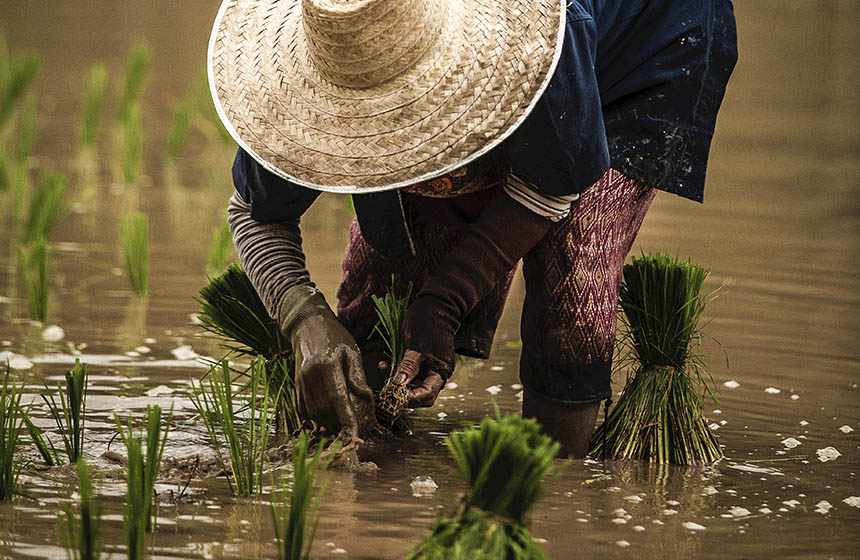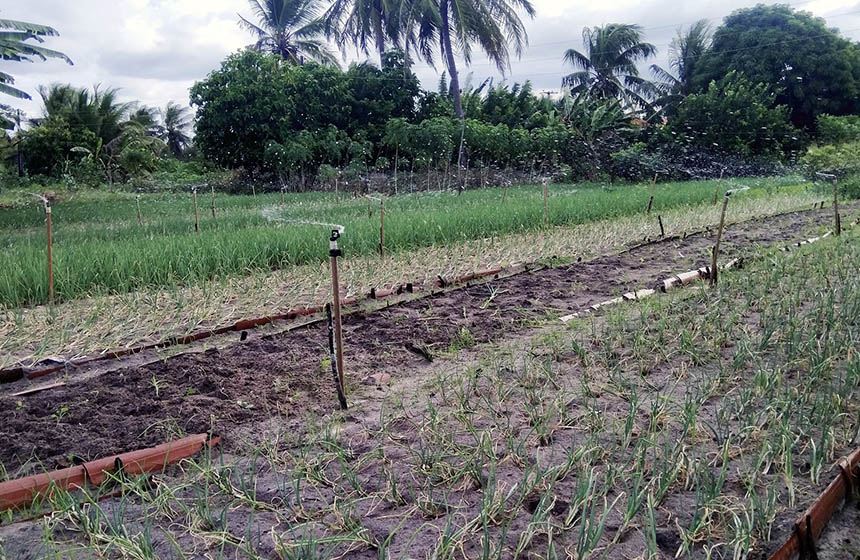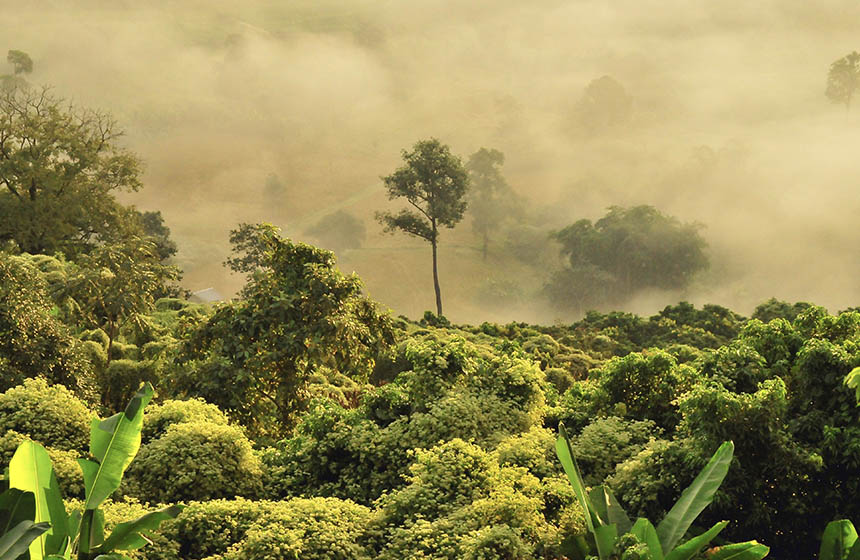Drought-resilient rice farming for communities and biodiversity
The Ibis Rice concept was developed and implemented by Sansom Mlup Prey (SMP) to provide local communities a premium price on drought-resistance rice if they abide by local conservation agreements.
Nature-based Intervention:
In this program local communities work to create their own sets of rules and regulations to protect local species which are then approved by the government. These rules often include the creation of a land-use plan and no-hunting rules. If farmers then abide by these rules they are offered a premium price for the sale of their rice crops incentivizing their participation in the local conservation agreement. As drought has become a larger threat to the local community, the program has expanded to promoting climate resilient agriculture to ensure food security and the continuation of the program. The program began providing drought-tolerant organic-certified seed to participating farmers in order in bolster their resilience to droughts. To maximize drought adaptability they have also promoted soil conservation, crop diversification in order to promote soil fertility and other sustainable production techniques.
Overview of context and outcomes:
The Ibis Rice concept has reportedly been a successful intervention which utilized wildlife-friendly farming to bolster local livelihoods and protect the critically endangered white shouldered ibis(Pseudibis davisoni) and the critically endangered giant ibis(Thaumatibis gigantea). However, the success of this initiative and local food security has been undermined by climate-change induced droughts which the area has a high vulnerability to.
Case effectiveness on
Climate change
While there are no reported mitigation outcomes, the project focuses on reducing deforestation near the villages likely leading to reduced greenhouse gas emissions.
The implementation of this project helped more than 1,250 families who are farmers in the Ibis Rice scheme to adopt drought-resilient agricultural practices and soil conservation techniques in order to increase their adaptive capacity in the face of climate change induced droughts.
Ecosystem health
Ecological effect: PositiveThe project reported decreased rates of deforestation in areas surrounding ibis rice villages when compared to rates of deforestation found in communities not enrolled in the program. There was also a reported 20% increase in the number of nests found of critically endangered giant and white shouldered ibis. The intervention helped to support species abundance and habitat extent.
Socioeconomic outcomes
In participating ibis rice villages it is reported that the poverty status improved by 20%. Furthermore, is is reported that participating farmers are able to increase their income by at least 20%. Basic necessity surveys reportedly found an increase in food security in the local villages, particularly in drought years where there are limited legal avenues for acquiring food.
Governance
The project was supported in its implementation by SMP, but the regulatory conservation measures were designed by the local community. Once these measures were designed and agreed upon, they were approved by the local government and then the delivery of the improved payments for ibis rice was managed through the SMP. In each participating village a locally elected Community Protected Area (CPA) committee is created to manage the enforcement of the rules.
Finance
The total drought adaptation budget for the project was £743,524. Out of this total the SMP provided £328,092, the Darwin initiative provided £299,491 and the Wildlife Conservation Society(WCS) provided £115,941.
Monitoring and evaluation
The CPA conducts monitoring on each of the individual farmers to ensure their compliance with the land use plan and hunting regulations. Once the farmer has been evaluated they can then be authorized for the ibis rice program payments. There was also external verification conducted by the WCS.
Trade-offs and limitations
No information yet available on tradeoffs.

Intervention type
- Food production
Ecosystem type
- Tropical & subtropical forests
Climate change impacts addressed
- Loss of food production
- Drought
Instigators
- Community/self driven
- International conservation/environment organization
- Local NGO or CBO (eg. indigenous)
Societal challenges
- Biodiversity conservation
- Climate change adaptation
- Economic and Social development
- Food security
Outcomes
- Food security: Positive
- Water security: Not reported
- Health: Not reported
- Local economics: Positive
- Livelihoods/goods/basic needs: Not reported
- Energy security: Not reported
- Disaster risk reduction: Not reported
- Rights/empowerment/equality: Not reported
- Conflict and security: Positive
- No. developmental outcomes reported: 3
Resources
Read resource 1Read resource 2
Read resource 3
Literature info
- Grey literature
- Peer reviewed



